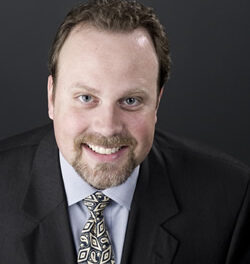Viva Voce! – Two Mini-Operas by Handel. Carolina Baroque directed by Dale Higbee. CB-111: 2 CDs, 45:27 & 45:39, recorded in concert February 28, 2002. $10 plus $5 postage/handling, available from Dale Higbee, 412 South Ellis Street, Salisbury, NC 28144-4820 or online at http://www.carolinabaroque.org/
Many residents of the Triangle (and beyond) lament the demise of UNC-based Ensemble Courant, formerly A Society for Performance on Original Instruments, and the loss here of the enthusiasm its members brought to baroque music. In recent months, we have learned more about an ensemble based in Salisbury that has-since 1988-been pursuing similar repertoire, using original instruments and historically-informed approaches to performances. Its director is Dale Higbee, whose editorial skill, expertise as a recorder virtuoso, and delight in his work are readily apparent in this live-performance recording of one of Carolina Baroque’s concerts earlier this season. The music is by Handel, and the works presented are Acis and Galatea, given in an abridgement by Higbee that nonetheless retains, as he says, “the whole story,” and Apollo e Daphne, given complete, in Italian, but with instrumentation that differs from that listed in several published sources. This is of relatively minor importance, for Higbee’s widely respected players-John Pruett and Mary Frances Boyce, baroque violins, Doris Powers (distinguished classical columnist of The Chapel Hill News), baroque viola, Holly Maurer, viola da gamba, Daniel Hannemann, harpsichord, and Higbee, who plays recorders and keeps the music moving along briskly-are all experts in the field. The singers are soprano Teresa Radomski (as Galatea and Daphne), tenor Richard Heard (Acis), and bass-baritone John Williams (Poylphemus, in A&G, and Apollo). The soprano and tenor are based at Wake Forest University, and the performances were recorded there, too, in Brendle Recital Hall.
These are first-class readings of Handel, but because they are live recordings, there are some minor problems. There is a good bit of reverberation in the hall itself, and while it doesn’t appreciably cloud the sound, it takes a few minutes to become acclimated to it. There are very few technical problems-these historically informed performers are clearly experts, so at only one point is there a hint of ensemble and/or intonation trouble, and it passes quickly. The works are from early in Handel’s career-Apollo and Daphne (sometimes referred to as “La terra è liberata”), completed in 1708, was written as Handel traveled north, from Venice to England; and Acis and Galatea (the librettists of which included John Gay, best known for The Beggar’s Opera) was composed a decade later, after he had arrived in London. Whether either of these may properly be called an opera could be debated; the former is generally included among Handel’s dramatic or secular cantatas, and the latter, with the odes and oratorios. That they work effectively as mini-operas, whether staged or not, is clear, and they certainly have recitatives and arias that resemble (in both form and inventive musical content) those contained in works that indisputably are operas.
Radomski is the vocal star here, but Williams’ singing will amaze and astonish those who have not had the pleasure of hearing him recently (he used to visit the Triangle with some frequency but has not been heard here of late). Heard is no slouch, and his voice is pleasing, but he seems, comparatively, a bit less comfortable in his solo parts than the others.
The instrumental work gives constant pleasure, as well it should, in view of the artists involved. The Triangle may have lost Ensemble Courant, but North Carolina has another ensemble that has replaced it. Those who enjoy savoring Handel’s music as Handel might have heard it or who find one-or-two-to-a-part performances of baroque works appealing owe it to themselves to investigate this 2-CD set and Carolina Baroque’s offerings next season, in Salisbury and Concord. See our 2002-3 Series tab for complete details.











